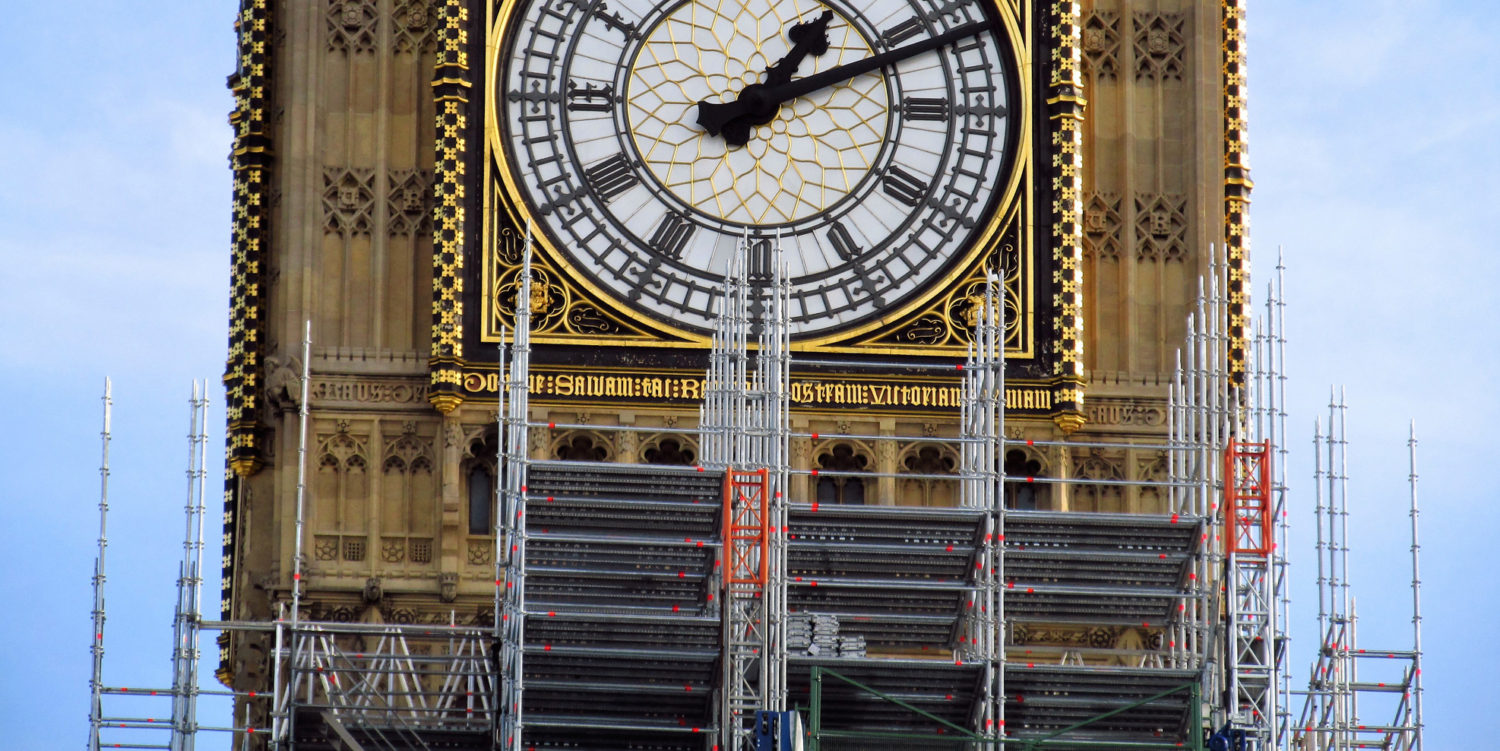Constitutional crisis
We live in radical times and that calls for radical reform, writes Alexandra Runswick.
The Palace of Westminster is famously in need of renovation. The dilapidated building, riddled with asbestos, leaking pipes, and mice running around, is an appropriate symbol for the state of our broken politics.
The Westminster model of politics is atrophying; it is stuck in an adversarial rut and unable to innovate or evolve. We bestow significance on arcane traditions and conventions that range from the benign, like the Black Rod ceremony, to the undemocratic – such as the Royal Prerogative power of Treaty Making, which deprives parliament of scrutiny and a default vote on international trade deals. Hours of parliamentary time are wasted every term whilst MPs queue up to walk through the voting lobby, in contrast to newer institutions like the Welsh Assembly where electronic voting is used to make sure every minute counts.
Just like MPs have clung onto a building that is subsiding into the Thames, so too they cling on to traditions and conventions that are not fit for a modern democracy. The political system we have in 2018 is one which is fundamentally not responsive to people’s needs. On the whole, people don’t feel like they have a voice, and they don’t feel that politics is for them. And for a representative democracy, this is a crisis.
Democracy in the UK, and the uncodified constitution that underpins it, is fundamentally geared up to entrench power systems; it disproportionately benefits those with power. That is what you get from a political system that evolved from despotic monarchies.
In February, the Justice 4 Grenfell campaign paraded a series of billboards around London, asking: ‘71 dead’, ‘And still no arrests?’, ‘How come?’. Our political system did not start the Grenfell Tower fire, but it did nothing for the people who lived there. It’s clear to see why that tragedy resonated nationally; many people relate to the frustration of being not just ignored, but treated with near contempt by their elected representatives. For many in our society, accessing politics and holding politicians to account is simply not possible.
Our first past the post electoral system, as a further example, takes choice, influence and power away from voters. It is voters, rather than political parties, that are forced to make concessions on the issues that matter to them. When political parties or individual politicians aren’t scared about being voted out of power, they aren’t disincentivised from representing only those interests they choose to.
UK-style democracy is also one in which money speaks louder than words. If you can cough up £50,000 for the Conservative’s Leader’s Group, you get a seat at the table with the prime minister herself. Similarly for Labour, a membership fee of more than £1,000 will buy you access to the exclusive Thousand Club. Yet if you’re homeless as a result of the Grenfell Tower fire, then it will be a challenge to have your voice heard by your own council.
So it’s no wonder really that only 29 per cent of people think that parliament is doing a good job of representing their interests. Or that when it comes to picking a party to vote for, 56 per cent of people feel that no party properly represents the view of people like them.
Our uncodified constitution has allowed the government of the day – Conservative, Labour, coalition or otherwise – to bestow itself ever increasing powers. It also means that the rights and freedoms we have come to enjoy – possibly even take for granted – could be taken away with a majority vote of one. Our political system is in dire need of root and branch reform, and Brexit has thrust upon us a perfect opportunity for change. The strain Brexit is exerting on our archaic institutions has also exposed why the need for radical reform is so urgent.
In her Lancaster House speech, the prime minister was explicit about Brexit presenting a moment where we must “take a look at the kind of country we want to be.” The vote to leave was, after all, propelled forward by the rallying cry to ‘take back control’, and it seems unlikely that those who cast their ballot in favour of leaving the EU envisioned ‘taking back control’ as meaning more powers for the executive and corporations.
A codified constitution – written by and for the people – could fix all of these problems or just some of them; it should ultimately be left up to the participants in a constitutional convention to decide what a new settlement between people and government should look like. However it would go quite some way towards creating a society in which politics works for people by defining inalienable rights and freedoms, placing clear constraints on government power, and clarifying the relationship between the four nations of the UK.
We live in radical times and that calls for radical reform. If we are tearing up the rulebook as we leave the EU and reshaping how we do things abroad, then we should also tear up the rulebook at home and make this a moment of transformative change. That means a codified constitution written by and for the people, that is fit for a modern democracy.

